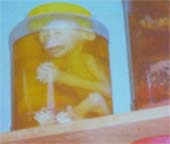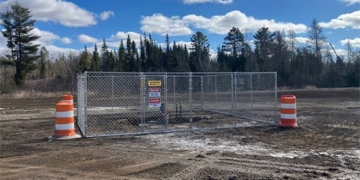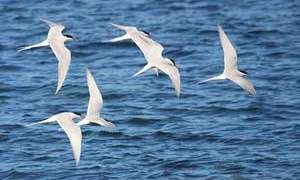 |
Endangered monkeys are becoming “nutritional supplements” like this. (Photo: WWF) |
In Hanoi, one out of every two residents is consuming wildlife. The wealthier individuals are consuming more, and eating “specialty” foods is becoming a trend, symbolizing status for civil servants and businesspeople.
This is an initial result from a survey conducted by TRAFFIC on 2,000 households in Hanoi, which was just announced this afternoon.
Vietnam ranks 16th in the world for biodiversity, with over 75 species unique to the country. |
The first survey conducted in Vietnam found that most residents of Hanoi are unaware of the basic regulations regarding the protection of threatened species and their habitats in Vietnam. Although the majority are aware of the concept of extinction, they believe that the decline of rare animal and plant species is due to hunting and habitat loss, rather than their consumption of “specialty” foods or using them as health supplements or jewelry.
A clear trend observed is that the wealthier and higher the status of individuals, the more wildlife they consume. While less than 3% of individuals earning below 1 million VND would “dare” to spend on high-end specialties, this figure rises to 64% among those earning between 1 to 5 million VND. Graduates with higher education levels account for 39% of those consuming specialty foods, while those with only basic education represent just 6%. Notably, civil servants and businesspeople are increasingly dominating this consumer group, viewing such consumption as a display of “class” when dining out.
Despite bans, many continue to hunt for tiger bones, bear bile, deer antlers, and rhino horns for medicinal purposes or home decor. The results indicate that the advocacy efforts and legal regulations in Vietnam regarding this issue have primarily had a nominal impact, failing to influence public behavior significantly.
“Many of the most consumed wildlife species in Vietnam are listed under the Convention on International Trade in Endangered Species of Wild Fauna and Flora (CITES), which Vietnam has been a part of since 1994, and are protected by Vietnamese law“, stated Mr. Sulma Warne, Coordinator of TRAFFIC Southeast Asia.
“The consumption of wildlife products has become most severe in recent decades as people’s economic conditions have improved, leading to ecosystem destruction and significant impacts on species populations and the environment“, Mr. Warne emphasized.
This survey is part of the project “Behavior Change – Reducing the Consumption of Wildlife Products in Hanoi, Vietnam“, funded by Denmark, which has been conducted from 2005 to 2007.
“Although there are penalties for those who illegally possess, trade, or consume wildlife, Vietnam does not have penalties for consumers of these ‘specialty’ products“, said Mr. Nguyễn Văn Cương, Deputy Director of the Vietnam Forest Protection Department. |
Alongside the survey, WWF Indochina Program and TRAFFIC have launched a competition for advertising film ideas running until May, open to all high school students in Hanoi. Each entry must include two parts: a description and explanation of a 30-second advertisement that highlights the slogan “Do not trade away nature’s life to satisfy your needs“.
The three best ideas will be awarded, with a prize of a Canon digital camera. The authors of the winning ideas will attend a film production training course in June, taught by an American filmmaker. After the course, students will select actors and film their projects. Once completed, these three advertisements will be aired multiple times on VTV throughout the coming year. Details of the competition rules can be found on the website http://www.wwfindochina.org/news%2Binfo/news.htm
A hotline has also been established at the Hanoi Forest Protection Sub-Department, phone number 04 -932-3333. Anyone witnessing illegal wildlife trading, possession, or consumption can call this number for investigation and resolution.
At universities, WWF will also organize clubs and forums to raise awareness about illegal wildlife consumption.
“No place has seen wildlife populations decline at such an alarming rate as Vietnam, all due to illegal trade and consumption“, said Mr. Eric Coull, Representative of WWF Greater Mekong. To prevent Vietnam from becoming a “blank spot” for rare species, every individual must contribute, starting with ceasing the consumption of illegal wildlife.
Thuận An




















































